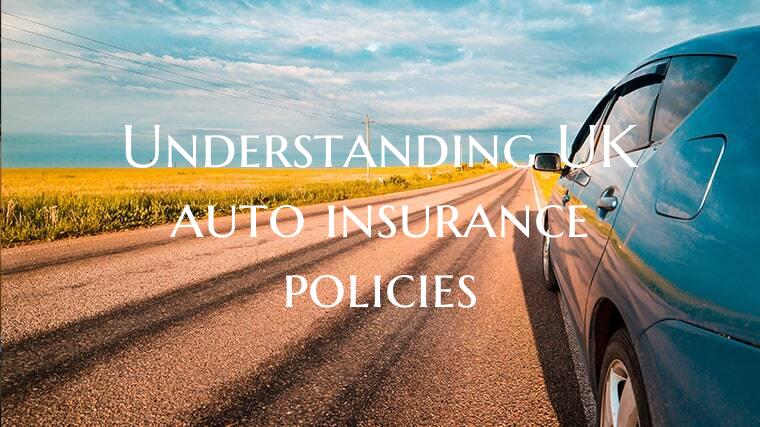Introduction to UK Auto Insurance Policies
Auto insurance is a legal requirement for anyone driving in the UK, whether you own a car or are just borrowing one. Understanding UK auto insurance policies is crucial to ensure you have the right coverage in place in case of an accident or other unforeseen events.
Types of Auto Insurance Policies in the UK
In the UK, there are primarily three types of auto insurance policies:
1. Third-Party Only (TPO): This is the minimum legal requirement for drivers in the UK. TPO covers damages or injuries to third parties involved in an accident caused by the insured driver. However, it does not cover damages to the driver's vehicle.
2. Third-Party, Fire, and Theft: This type of policy covers damages to third parties, as well as fire damage to the insured vehicle or theft of the vehicle.
3. Comprehensive: Comprehensive auto insurance provides the highest level of coverage. It includes third-party coverage, fire and theft protection, as well as coverage for damages to the insured vehicle in case of an accident.
Factors Affecting Auto Insurance Premiums
Several factors influence the cost of auto insurance premiums in the UK. These include:
1. Age: Younger and inexperienced drivers typically have higher insurance premiums due to increased risk.
2. Driving History: A clean driving record with no claims or traffic violations can help lower insurance costs.
3. Vehicle Type: The make, model, and age of the vehicle can impact insurance premiums.
4. Location: Where you live and where the car is parked overnight can also affect insurance rates.
5. No Claims Bonus: Building a no claims bonus by not making any claims on your insurance policy can lead to reduced premiums.
Understanding the terms and conditions of UK auto insurance policies is essential to ensure you have the right coverage for your needs. It's advisable to compare quotes from different insurance providers to find the best policy at a competitive price. Remember to disclose all relevant information accurately to avoid any issues with your insurance coverage in the event of a claim.

